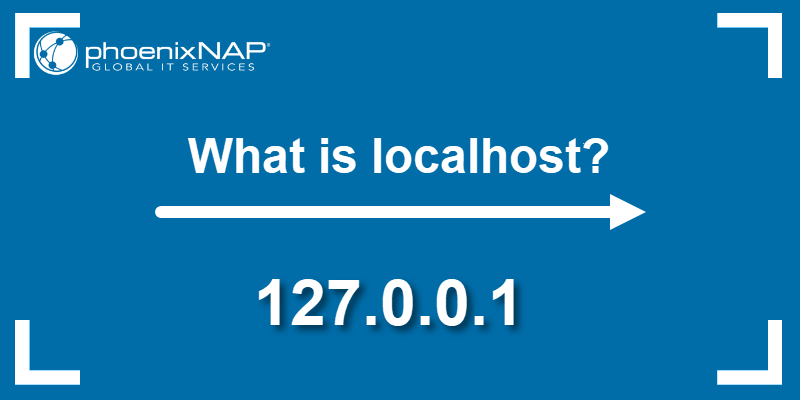SEO Meta Description: Discover the ins and outs of 127.0.0.1, the cornerstone of local networking. Learn its significance, how it works, and its various applications in web development and cybersecurity.
Introduction: In the world of networking and web development, 127.0.0.1 holds a pivotal place. Often referred to as “localhost,” this IP address is crucial for testing and development purposes. Understanding 127.0.0.1 can greatly enhance your ability to troubleshoot, develop, and secure networked systems.
What is 127.0.0.1? 127.0.0.1 is an IPv4 address reserved for local host testing and development. It allows developers to test software and network configurations on their own machine without affecting external networks.
Introduction to 127.0.0.1
Definition and Basics 127.0.0.1 is a loopback IP address in the IPv4 range, used primarily for diagnostics and troubleshooting in a networking environment. This address is standardized and reserved by the Internet Assigned Numbers Authority (IANA) for loopback testing.
Significance in Networking
Localhost and Loopback Interface The term “localhost” is synonymous with 127.0.0.1. It points to the loopback interface of your network stack, allowing communication within the same device. This is crucial for developers as it provides a sandbox environment for testing applications without the risk of external interference.
Technical Breakdown
IPv4 and IPv6 Addresses While 127.0.0.1 is an IPv4 address, its IPv6 equivalent is ::1. Both serve the same function but are used in different IP versions. IPv6 was introduced to overcome the limitations of IPv4, providing a larger address space and improved routing.
Historical Context
Evolution of Localhost Usage The concept of localhost dates back to the early days of networking when testing environments were required for developing and debugging networked applications. Over the years, its usage has expanded to include a variety of development and security tasks.
Applications in Web Development
Testing and Debugging Using 127.0.0.1, developers can simulate a networked environment locally. This is particularly useful for testing web applications, databases, and other networked services without deploying them to a live environment.
Running Local Servers Many web developers use 127.0.0.1 to run local instances of web servers like Apache, Nginx, or Node.js. This allows for the creation and testing of web applications in a safe and controlled environment before going live.
Role in Cybersecurity
Vulnerability Testing Ethical hackers and cybersecurity professionals often use 127.0.0.1 to perform vulnerability assessments on local systems. This helps identify and fix security flaws without exposing the network to external threats.
Ethical Hacking and Penetration Testing Localhost environments are ideal for penetration testing, allowing cybersecurity experts to refine their techniques and tools in a risk-free setting.
Common Misconceptions
Myths About Localhost A common misconception is that localhost is entirely safe and cannot be exploited. While it is isolated from external networks, vulnerabilities within the local environment can still be exploited if proper security measures are not in place.
How to Use 127.0.0.1
Setting Up Localhost Setting up 127.0.0.1 involves configuring your local machine to recognize and route traffic to this address. This is typically done through network settings or configuration files specific to the software you are using.
Common Tools and Software Various tools and software like XAMPP, WAMP, and Docker facilitate the use of 127.0.0.1 by providing pre-configured environments for web development and testing.
Troubleshooting Tips
Common Issues and Solutions Common issues with 127.0.0.1 include port conflicts, firewall settings, and software misconfigurations. Solutions often involve checking configuration files, ensuring no port conflicts, and adjusting firewall rules.
Comparing 127.0.0.1 with Other Addresses
Differences with External IPs Unlike external IP addresses, 127.0.0.1 is not routable outside the local machine. It is purely for internal communication, making it distinct from public or private IP addresses used in network communications.
Security Practices
Safeguarding Your Localhost Even though 127.0.0.1 is isolated, it’s essential to secure your localhost environment. This includes using strong passwords, keeping software up to date, and restricting access to only necessary services.
Advanced Uses of 127.0.0.1
Network Simulation 127.0.0.1 can be used to simulate complex network environments for testing purposes. This allows developers and network administrators to test scenarios that mimic real-world conditions.
Load Balancing In more advanced setups, localhost can be used for load balancing during the development phase. This helps in optimizing applications for better performance before deployment.
Case Studies
Real-world Examples Numerous companies and developers use 127.0.0.1 in their daily operations. For example, software companies rely on localhost for continuous integration and testing, ensuring that code changes do not disrupt production environments.
Future of 127.0.0.1
Emerging Trends The future of 127.0.0.1 lies in its integration with modern development practices like containerization and microservices. As these technologies evolve, the role of localhost in development and testing will continue to grow.
Frequently Asked Questions
What is the purpose of 127.0.0.1? 127.0.0.1 is used for local network testing and development, allowing communication within the same device.
Can 127.0.0.1 be accessed externally? No, 127.0.0.1 is limited to the local machine and cannot be accessed from external networks.
How do I set up 127.0.0.1 on my computer? Setting up 127.0.0.1 involves configuring your local network settings or using software that automatically sets it up for you, such as web development stacks.
Is 127.0.0.1 safe to use? While 127.0.0.1 is isolated from external networks, it’s important to secure your localhost environment to prevent local vulnerabilities from being exploited.
What are some common issues with 127.0.0.1? Common issues include port conflicts, misconfigured software, and firewall restrictions. Troubleshooting involves checking these areas for potential problems.
How does 127.0.0.1 differ from other IP addresses? 127.0.0.1 is specifically designed for local communication within the same machine, unlike public or private IP addresses used for external network communications.
Conclusion
Summary and Final Thoughts 127.0.0.1, or localhost, is an indispensable tool for developers, network administrators, and cybersecurity professionals. Its ability to facilitate local testing and development without affecting external systems makes it a cornerstone of modern computing practices. Understanding and utilizing 127.0.0.1 can significantly enhance your capabilities in web development, network management, and cybersecurity.
Unlock the Power of Localhost: The Ultimate Guide to 127.0.0.1




